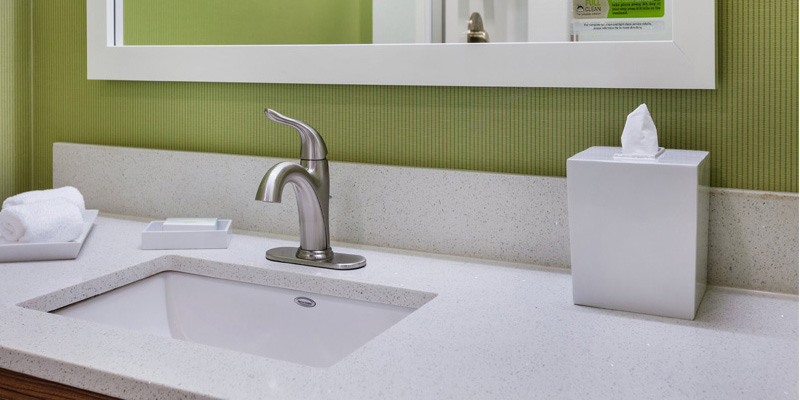Advantages and Disadvantages of Engineered Stone Countertops
Dec16,2017
Engineered stone countertops are created using a process that binds crushed stone together utilizing a polymer resin. The primary material employed is typically quartz. The resulting product is highly customizable and easy to use. Maintenance of engineered stone products is typically less than with natural stone products, which may need to be treated from time to time. Engineered stone can be cut and milled in the same manner as other stone products that are available for creating countertops, and this allows contractors to readily substitute engineered stone when a plan might.

While engineered stone is not cheap in any sense, it tends to be at the lower-end of the price range for stone countertop materials. The cost of engineered stone is comparable to granite and significantly cheaper than marble. For customers who are looking to get a marble countertop look at a cheaper price, engineered stone offers an impressive range of options while also providing significantly greater visual consistency than marble.
Engineered stone can readily be used for projects that were planned with other materials in mind. It’s very simple for a contractor to start using, and the high level of consistency between slabs of material permits greater leeway in putting together large sections of countertop. This also reduces the likelihood that a different contractor in the future will have trouble matching the material if a section needs to be replaced. Any contractor already capable of installing stone countertops should be able to readily install engineered stone products.
 The primary disadvantage of engineered stone is the question of authenticity. For customers who wish to obtain the most authentic and natural stone appearance, the consistency of engineered stone may not suit their taste. While it is possible to achieve the more natural look of veined or weathered-stone materials using engineered stone, the effort to produce that look is likely to bring the project closer in cost to simply using natural stone materials in the first place.
The primary disadvantage of engineered stone is the question of authenticity. For customers who wish to obtain the most authentic and natural stone appearance, the consistency of engineered stone may not suit their taste. While it is possible to achieve the more natural look of veined or weathered-stone materials using engineered stone, the effort to produce that look is likely to bring the project closer in cost to simply using natural stone materials in the first place.
While engineered stone countertops are considered to be heat-resistant, they are generally considered to be less resistant than marble or granite. It is also more susceptible to sudden changes in temperature, which may cause the resin to react. Expansion and contraction over time are more common with engineered stone than natural stone materials.
Engineered stone offers an alternative to traditional stone when building a new counter. Dramatic looks that cannot typically be achieved using natural stone can be easily created using quartz and mixed materials. This opens up a range of design and budget options.

